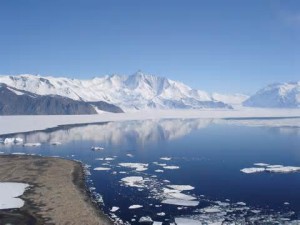 Former ACT MP Muriel Newman — an extreme right-winger and no stranger to the wilder shores of climate denial — has waded into the debate about sea level rise and coastal hazards in Christchurch in a long-winded and unhelpful article at her NZ “Centre for Policy Research” web site. In many respects, her piece is par for the Hidebound course — full of misdirection, misrepresentation and schoolgirl errors of fact, motivated by a weird world view:
Former ACT MP Muriel Newman — an extreme right-winger and no stranger to the wilder shores of climate denial — has waded into the debate about sea level rise and coastal hazards in Christchurch in a long-winded and unhelpful article at her NZ “Centre for Policy Research” web site. In many respects, her piece is par for the Hidebound course — full of misdirection, misrepresentation and schoolgirl errors of fact, motivated by a weird world view:
The reality is that unfortunately, carbon dioxide is being used as a political football. When radicals embraced the environmental movement in the seventies, driving out people like Dr Patrick Moore the founder of Greenpeace, they used the climate debate to conceal their real agenda – the global redistribution of wealth.
Newman takes as the text for her sermon a piece by Mike Kelly, a New Zealander who is a professor at the University of Cambridge in the UK. His offering is just as ill-informed as Newman’s — can it really be the case that a professor of technology, whose main expertise is in “advanced electronic devices for very high speed operation”, doesn’t understand the difference between weather forecasting and climate modelling? Perhaps Kelly should read a few introductory texts on climate modelling before pontificating so publicly — and so erroneously.
But what makes Newman and Kelly’s articles so unhelpful to coastal residents in Christchurch and elsewhere is not the parroting of climate denialist tropes, but the conclusion she reaches:
The Christchurch Council – and all other councils around New Zealand for that matter – should base their coastal hazard projections, on what has happened in the past. There is no perfect predictor of the future, but looking at what has actually happened in the past is better than seizing on unreliable models developed by those driving a political agenda.
Let’s do what Newman wants, and forget modelling future sea level rise. Let’s look at the past.
Continue reading “The advice of fools: Newman and Kelly risible on rising seas”

 Late last week, New Zealand’s far right ACT party was pleased
Late last week, New Zealand’s far right ACT party was pleased  Untroubled as he is by the responsibilities of public office, or any apparent need to appear consistent, the former leader of the far-right ACT Party, Rodney Hide, attempts to ridicule the Green Party’s new carbon tax policy in his
Untroubled as he is by the responsibilities of public office, or any apparent need to appear consistent, the former leader of the far-right ACT Party, Rodney Hide, attempts to ridicule the Green Party’s new carbon tax policy in his 

You must be logged in to post a comment.